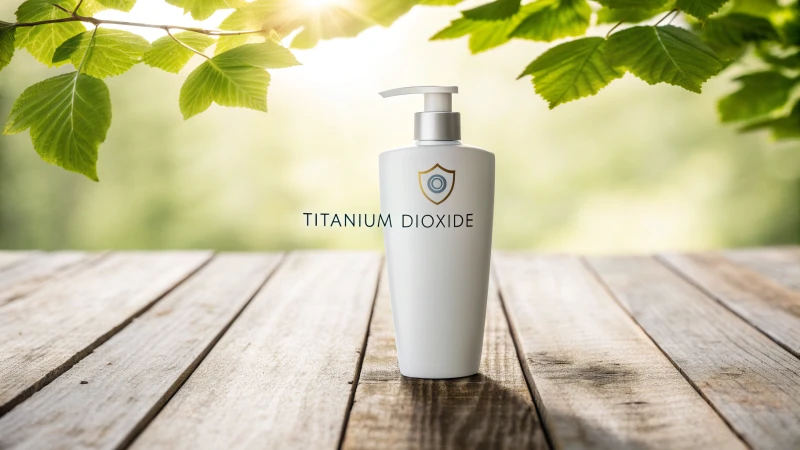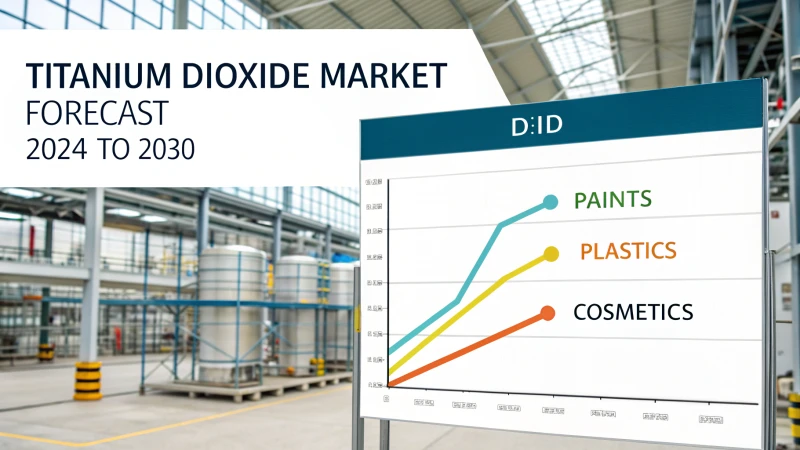
Have you ever felt overwhelmed by the thought of purchasing titanium dioxide in bulk? Trust me, you’re not alone.
When buying titanium dioxide in bulk, I focus on supplier reliability, product quality standards, regulatory compliance, and market trends. By thoroughly evaluating these factors, I ensure cost-effective and high-quality TiO₂ products for my business.
Remember the time I almost signed a deal without checking the supplier’s reliability? It was a close call. Now, I make it a point to dive deep into each of these considerations. Evaluating supplier reliability saves me from future headaches, ensuring that what I order arrives on time and in top-notch condition.
I also learned the hard way about the importance of understanding market trends. Prices fluctuate, and knowing when to buy can lead to significant savings. So, let’s break down these factors further and share insights on navigating the complexities of bulk TiO₂ purchases effectively. Stick around, and we’ll explore how each aspect can transform your procurement strategy into a well-oiled machine.
[claim claim=”Supplier reliability is crucial for TiO₂ bulk purchases.” istrue=”true” explanation=”Reliable suppliers ensure consistent delivery and quality of titanium dioxide.”]
[claim claim=”Ignoring market trends has no impact on TiO₂ procurement.” istrue=”false” explanation=”Market trends affect pricing and availability, impacting procurement strategies.”]
How Can You Evaluate Supplier Reliability for TiO₂?
Ever felt the pressure of ensuring your titanium dioxide supply chain doesn’t let you down?
To evaluate TiO₂ supplier reliability, I look at their quality certifications, track record, technical support, and supply chain logistics. Using a supplier scorecard helps me quantify these aspects for a thorough evaluation.

Understanding Supplier Certifications
When I first started evaluating TiO₂ suppliers, I learned that certifications are like gold stars in school. They might not tell the whole story, but they sure give a good starting point. I always check for ISO and other industry-specific certifications because they show a supplier’s commitment to quality1 standards.
Analyzing Supplier Track Record
A supplier’s track record is their resume. I remember once coming across a supplier who boasted about their years in business. Turns out, they had a pretty rocky reputation. That taught me to dig deeper—talk to other clients, read reviews, and understand what their peers say. It’s like background checking someone before a big date. Investigate how long they have been supplying TiO₂ and their reliability2 among peers.
Assessing Technical Support and Customization
Once, during a massive paint manufacturing project, I realized how crucial technical support from suppliers can be. One of our suppliers was fantastic with customization, providing the technical documentation we needed—TDS and MSDS included. This level of support not only met our specific needs but also made me realize that reliable suppliers are those who act more like partners than mere providers. Check if they provide technical documentation such as TDS and MSDS, which are critical for product evaluation. Assess their ability to customize solutions to meet your specific needs3.
Evaluating Supply Chain Logistics
I can’t stress enough how logistics can make or break a deal. Picture this: waiting eagerly for a TiO₂ shipment, only to be told it’s delayed because of poor logistics management. Not fun. Now, I always consider a supplier’s proximity to major ports and their track record with delivery timelines. This foresight helps prevent those dreaded supply chain disruptions4.
| Criteria | Importance | Metrics to Evaluate |
|---|---|---|
| Quality Certifications | High | ISO 9001, industry-specific certs |
| Supplier Track Record | Medium | Years in business, client testimonials |
| Technical Support | Medium | TDS, MSDS availability |
| Supply Chain Logistics | High | Delivery times, shipping capabilities |
Utilizing a Supplier Scorecard
Creating a supplier scorecard was a game changer for me. It’s like having a cheat sheet during exams. By assigning weights to each criterion based on importance, I can score suppliers effectively. This structured approach doesn’t just make decision-making easier; it ensures I choose partners who align with my goals and make informed supplier decisions5.
[claim claim=”ISO certifications ensure supplier quality commitment.” istrue=”true” explanation=”ISO certifications indicate adherence to recognized quality standards.”]
[claim claim=”Supplier track record is irrelevant for TiO₂ reliability.” istrue=”false” explanation=”A supplier’s track record helps assess their reliability and reputation.”]
What Quality Assurance Measures Should You Look For?
Ever found yourself wondering if your supplier really has your back when it comes to quality?
When choosing a supplier, look for adherence to industry standards, comprehensive quality control processes, regular audits, and detailed documentation. These practices ensure consistent product quality and reliability.

I remember when I first started evaluating suppliers; it felt like trying to find a needle in a haystack! It wasn’t just about the price; quality assurance measures played a huge role in my decision-making. Here’s what I learned along the way.
Adherence to Industry Standards
One crucial aspect I always check is whether the supplier complies with industry standards such as ISO certifications6. Imagine buying paint that doesn’t hold up its color because the supplier didn’t follow protocols! Ensuring they adhere to these standards gives me peace of mind that the products will consistently meet quality benchmarks.
Robust Quality Control Processes
Quality control is like having a safety net. I’ve seen firsthand how regular inspections and testing throughout production can catch defects early. For instance, during one project, pre-shipment inspections saved us from receiving a batch of sub-par goods. This proactive approach ensures only top-quality products leave the factory.
| Quality Control Measures | Description |
|---|---|
| Pre-Shipment Inspections | Checks conducted before shipment to ensure product quality |
| In-Process Testing | Regular assessments during production to catch defects early |
Regular Audits and Continuous Improvement
Audits are like health check-ups for suppliers—they help identify areas for improvement. I prefer working with suppliers who engage in practices like Six Sigma7 because it shows their commitment to reducing defects and enhancing efficiency. It’s reassuring to know they’re always striving to do better.
Comprehensive Documentation
Finally, comprehensive documentation is a non-negotiable for me. It’s like getting a detailed guidebook with each product—TDS (Technical Data Sheets), MSDS (Material Safety Data Sheets), and COA (Certificates of Analysis) provide essential information about composition and safety. Plus, they serve as proof that the supplier meets all relevant standards.
By focusing on these quality assurance measures, I can confidently choose suppliers who prioritize reliability and safeguard my business interests. It’s about creating a partnership where both parties thrive through mutual trust and high standards.
[claim claim=”ISO certifications indicate adherence to industry standards.” istrue=”true” explanation=”ISO certifications are recognized as benchmarks for quality and safety.”]
[claim claim=”Pre-shipment inspections are unnecessary for quality assurance.” istrue=”false” explanation=”Pre-shipment inspections help identify defects before products ship.”]
Why Is Regulatory Compliance Important in TiO₂ Purchases?
Regulatory compliance isn’t just about ticking boxes; it’s about building trust and ensuring integrity in every purchase.
Regulatory compliance in TiO₂ purchases is crucial for meeting safety standards, avoiding legal issues, and ensuring ethical sourcing. It helps businesses steer clear of fines and maintain a strong brand image.

Ensuring Safety and Quality Standards
I remember the first time I dived into the world of titanium dioxide (TiO₂). The terms "regulatory compliance8" seemed daunting at first, but they became my guiding light. Adhering to safety and quality standards is non-negotiable. These regulations aren’t just bureaucratic red tape—they ensure that products like paints, cosmetics, and plastics are safe for consumers. I’ve seen firsthand how manufacturers who meet these standards not only produce reliable TiO₂ but also build trust with their clients.
| Regulatory Body | Key Regulations |
|---|---|
| FDA | Food contact safety |
| REACH | Registration, Evaluation, Authorization |
| ISO | Quality management standards |
Avoiding Legal Consequences
I once had a close call with regulatory compliance—or rather, the lack of it. A client almost faced hefty fines due to not understanding international TiO₂ requirements. It was a wake-up call for me. Each country has its own set of rules, like the EU’s REACH regulation, which requires a thorough evaluation of chemical substances. Staying informed and compliant not only saved us from legal challenges but also taught us a valuable lesson in diligence.
Ethical Sourcing and Sustainability
In today’s world, ethical sourcing is more than just a trend—it’s a necessity. I’ve found that companies focusing on ethical practices9 often enjoy stronger brand loyalty. It’s heartening to see consumers value sustainability and corporate responsibility. By ensuring our TiO₂ is sourced responsibly, respecting labor laws, and minimizing environmental impact, we align with our clients’ values and contribute to a better world.
Building Consumer Trust
There’s nothing like seeing consumers trust a product because it meets all safety and ethical standards. I’ve seen this particularly in the cosmetics industry, where product safety is paramount. Compliance builds consumer confidence and ensures that customers return time and again.
Enhancing Global Market Access
I learned early on that regulatory compliance isn’t just about keeping the lights on—it’s about opening new doors. Meeting international regulations has allowed us to expand our market reach dramatically. This adherence to rules means we can export products globally without hitting trade barriers, boosting our sales and strengthening our global presence.
Conclusion
Regulatory compliance might seem like a chore at times, but it’s an essential part of business strategy. It’s not just about following laws; it’s about setting a standard for safety, ethics, and competitiveness. By keeping up with evolving global standards and industry practices, we not only mitigate risks but also enhance our brand’s reputation and consumer trust.
By weaving these aspects into our business strategy, we make informed decisions that align with our operational goals and ethical values, ensuring sustainable growth and success in the TiO₂ market.
[claim claim=”TiO₂ compliance prevents legal penalties.” istrue=”true” explanation=”Non-compliance can lead to fines and product sale restrictions.”]
[claim claim=”Ethical sourcing of TiO₂ is optional.” istrue=”false” explanation=”Ethical sourcing is part of regulatory compliance, affecting brand loyalty.”]
How do market trends affect TiO₂ prices?
Ever wondered why the price of Titanium Dioxide (TiO₂) can swing like a pendulum? Let’s dive into the market trends that make this happen.
Market trends impact TiO₂ pricing through various factors like supply-demand balance, production costs, geopolitical influences, and technological advancements. These factors collectively shape the pricing and availability of TiO₂ globally.

Supply and Demand Dynamics
The balance between supply and demand is a primary factor affecting TiO₂ prices. I remember a time when the automotive and construction10 industries were booming, and demand for TiO₂ was skyrocketing. As you’d expect, prices climbed right alongside that demand. Conversely, I’ve also seen sectors slow down, leaving us with surplus supplies and, thankfully, lower prices. It’s a dance of economics that’s fascinating to watch, especially when you’re in the thick of it.
Production Costs and Raw Material Availability
Production costs, including labor, energy, and raw materials such as ilmenite or rutile, significantly impact TiO₂ pricing. Imagine trying to budget when energy costs are rising like a relentless tide or raw materials suddenly become scarce. I’ve been there. One minute you’re on top of your game, and the next, you’re scrambling to keep up with increasing production expenses. Thankfully, with advanced production technologies11, we’ve managed to cushion some of these blows.
| Factor | Impact on TiO₂ Pricing |
|---|---|
| Energy Costs | Increases production costs |
| Raw Material Cost | Affects availability |
| Labor Costs | Influences production price |
Geopolitical Factors
I’ve learned that geopolitical factors can turn our world upside down overnight. Geopolitical tensions or trade policies can disrupt the global supply chain of TiO₂. A change in trade policies or geopolitical tensions can disrupt everything. When tariffs are imposed by big players in the market, it affects not just prices but our entire strategy. And with China’s pivotal role12 in TiO₂ production, any policy changes there ripple across the globe.
Technological Advancements
Innovation is something I look forward to because it can revolutionize our approach to production and application. Technologies that improve efficiency or reduce environmental impact not only change how we operate but also influence demand and pricing structures. I recall how developments in photocatalytic applications opened new doors for us, reshaping market opportunities and affecting price dynamics. It’s an exciting frontier that promises more changes ahead.
[claim claim=”Increased energy costs raise TiO₂ prices.” istrue=”true” explanation=”Higher energy costs increase production expenses, leading to higher TiO₂ prices.”]
[claim claim=”Geopolitical tensions have no effect on TiO₂ pricing.” istrue=”false” explanation=”Geopolitical tensions can disrupt supply chains, impacting TiO₂ pricing.”]
Conclusion
When purchasing titanium dioxide in bulk, prioritize supplier reliability, product quality, regulatory compliance, and market trends to ensure cost-effective and high-quality procurement.
-
Understand which certifications indicate a supplier’s commitment to quality, ensuring they meet industry standards. ↩
-
Learn methods to evaluate a supplier’s reliability through industry reputation and client testimonials. ↩
-
Explore customization possibilities like tailored solutions and technical documentation that suppliers should provide. ↩
-
Discover how efficient logistics can prevent supply chain disruptions and ensure timely deliveries. ↩
-
Find out how to develop a scorecard to systematically evaluate and compare TiO₂ suppliers. ↩
-
Learn about the significance of ISO certifications in ensuring high manufacturing standards. ↩
-
Discover how Six Sigma methodologies enhance quality assurance by reducing defects. ↩
-
Explore detailed compliance requirements for TiO₂ to ensure product safety and legal adherence. ↩
-
Learn about ethical sourcing in TiO₂ production to enhance sustainability and corporate responsibility. ↩
-
Understanding the link between industry growth and TiO₂ demand helps in anticipating price changes. ↩
-
Exploring technological advancements reveals how they influence production costs and efficiency. ↩
-
Analyzing China’s influence provides insights into potential pricing shifts due to policy changes. ↩
-
Discovering new applications can reveal emerging markets that affect demand and pricing. ↩





